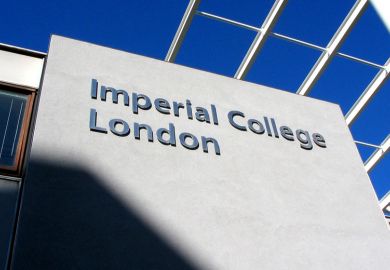The University of the South Pacific (USP) faces a third year of starvation funding and the escalating threat of fracture as its biggest contributor continues to withhold grants.
The pan-regional university risks being split by the same tensions that are undermining regional political cooperation, with small Micronesian countries hitting back at heavy-handed larger neighbours.
The five Micronesian states quit the Pacific Islands Forum in February after their candidate for secretary general was snubbed. Now Nauru has condemned Fiji’s refusal to hand over its share of USP funding as “divisive”, with Nauru’s president, Lionel Aingimea, warning that the university “does not belong to any one country”.
His comments came after Fiji complained that it was inadequately represented on the university’s governing body. Attorney general Aiyaz Sayed-Khaiyum said just five of the council’s 32 members came from Fiji even though it provided three-quarters of the total government grant – about 200 times as much as Nauru.
USP political sociologist Tui Rakuita and geographer Sevanaia Sakai said that if council seats were allocated according to funding shares, several of the 12 countries that collectively own the university would not be represented on its governing body. “That would be a death knell to regionalism (if it ever existed),” they wrote in The Fiji Times.
USP’s leadership crisis escalated last September when Fiji flagged its intention to withhold grant funding over governance grievances. Fiji wants an independent investigation of allegations levelled against reformist vice-chancellor Pal Ahluwalia, after he raised claims of mismanagement by his predecessors.
A subcommittee of the council dismissed the allegations against Professor Ahluwalia as lacking sufficient evidence to warrant external investigation. The council also rejects Fiji’s claim that a contract renewal awarded to Professor Ahluwalia – whom Mr Sayed-Khaiyum describes as the “former vice-chancellor” – was illegal.
Professor Ahluwalia said Fiji’s “underpayment” now totalled F$63 million (£22 million). Nevertheless, USP had remained in surplus and would survive the current crisis. “I have full confidence in council coming up with a solution,” he said.
Pro chancellor Winston Thompson said the institution’s capacity to survive under an “austerity budget situation” was wearing thin.
“What they’ve done is pare the expenses down to the bare bones to maintain their cash flow…which is untenable even in the short term. It is certainly not sustainable in the medium term, so something has to be done,” he said.
Mr Sakai said the USP would remain “financially stable” until perhaps March 2022. But its survival thereafter could depend on whether Australia and New Zealand, the major foreign donors, stepped in with extra funding.
A change of government in Fiji could resolve the crisis, with the incumbent FijiFirst party considered vulnerable in next year’s election. But a replacement coalition government could prove incapable of restoring the funding.
Yet another scenario could see Fiji nationalising USP’s campuses in its biggest cities of Suva and Lautoka, in effect appropriating assets bankrolled by the region. “That would take things absolutely nuclear,” said Jonathan Pryke, director of the Pacific Islands Program at Australia’s Lowy Institute thinktank. “If they take that route, they are going to be really shunned from the region again.”
He said the most likely outcome was that the university “continues to atrophy”, which would be “very disappointing” for students and for the standing of an institution that was beloved across the region. “It has been looked on for decades as the greatest example of Pacific regionalism,” Mr Pryke said.




